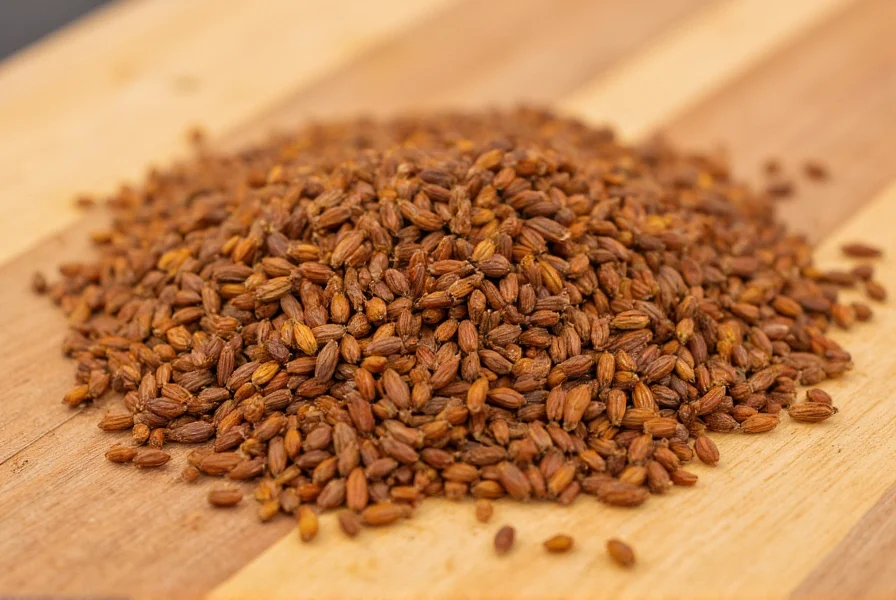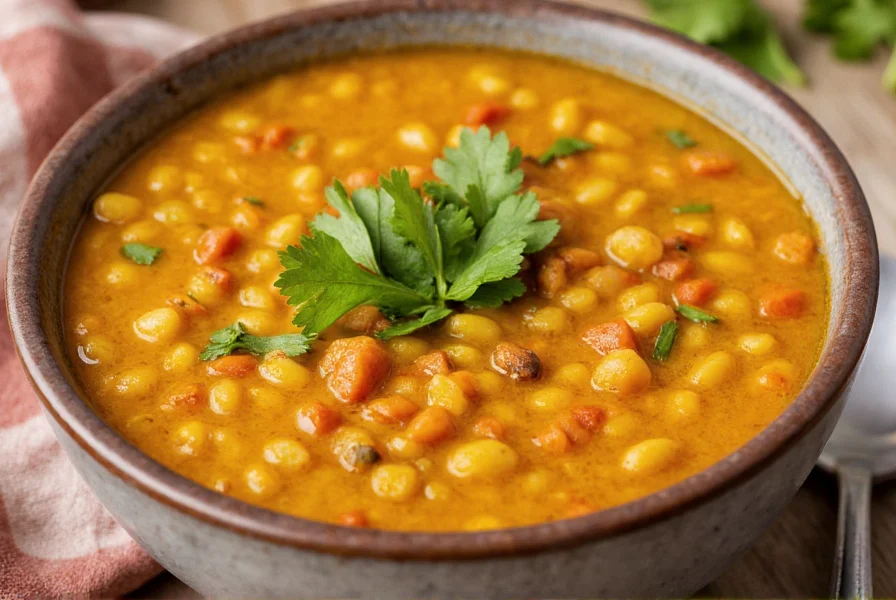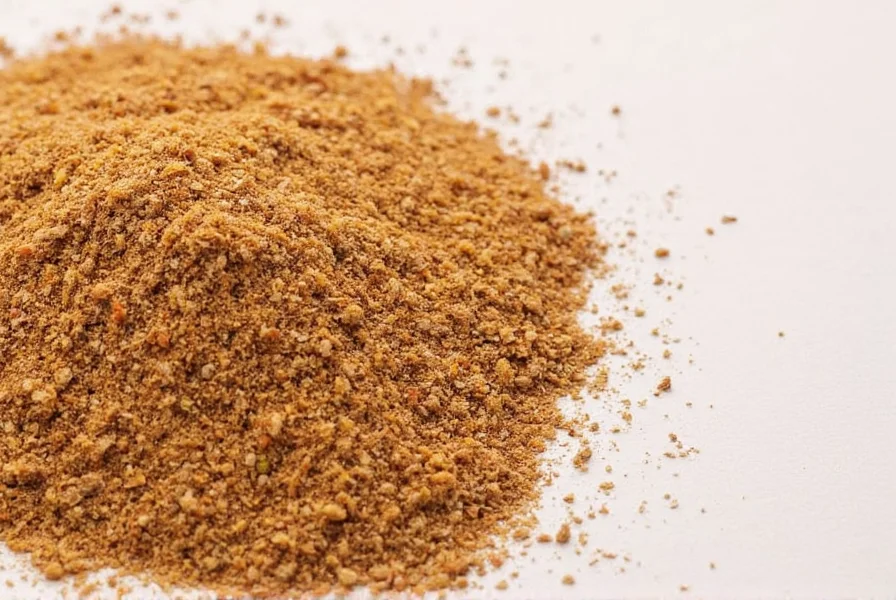Cumin (Cuminum cyminum), a staple spice in global cuisines for thousands of years, has attracted scientific interest for its potential health properties. This small seed from the parsley family offers more than just distinctive flavor—it contains bioactive compounds like cuminaldehyde and terpenes that may contribute to various physiological effects. Understanding the actual science behind cumin health effects requires examining both traditional uses and contemporary research findings.
Scientifically Supported Health Benefits of Cumin
Research into cumin health effects reveals several promising areas where this common spice may offer benefits. While human studies remain limited compared to animal and laboratory research, the existing evidence provides valuable insights into potential applications.
Digestive Health Enhancement
One of cumin's most well-documented effects relates to digestive health. Scientific evidence on cumin health benefits shows it stimulates digestive enzyme secretion, particularly those involved in carbohydrate and fat metabolism. A 2019 clinical trial published in Complementary Therapies in Medicine found that participants consuming cumin extract experienced significant improvements in symptoms of irritable bowel syndrome compared to placebo.
The spice's traditional use for relieving bloating and gas aligns with modern understanding of its carminative properties. Cumin spice effects on digestion appear to work through multiple mechanisms, including relaxing gastrointestinal smooth muscle and reducing inflammation in the digestive tract.
Anti-inflammatory Properties
Cumin contains several compounds with demonstrated anti-inflammatory activity in laboratory studies. Research examining cumin anti-inflammatory properties has identified cuminaldehyde as a key component that may inhibit inflammatory pathways. A 2020 review in Phytotherapy Research summarized multiple studies showing reduced inflammatory markers in animal models treated with cumin extracts.
While promising, it's important to note that most anti-inflammatory research on cumin has been conducted in vitro or in animal models. Human clinical trials specifically measuring inflammation markers after cumin consumption remain limited, representing a gap in current scientific understanding of cumin health effects.
| Research Area | Key Findings | Research Limitations |
|---|---|---|
| Digestive Health | Improved IBS symptoms, increased digestive enzyme activity | Small human trials, short duration |
| Blood Sugar Regulation | Reduced fasting glucose, improved insulin sensitivity | Primarily animal studies, limited human data |
| Antioxidant Effects | High phenolic content, free radical scavenging activity | Test tube studies don't reflect human metabolism |
Blood Sugar Regulation Potential
Emerging research suggests cumin may play a role in blood sugar management. Multiple animal studies have demonstrated that cumin extracts can reduce fasting blood glucose levels and improve insulin sensitivity. A small human study published in Journal of Ethnopharmacology found that daily consumption of cumin powder (3g) significantly reduced blood sugar markers in people with type 2 diabetes over a three-month period.
Cumin blood sugar regulation research indicates several potential mechanisms, including enhanced insulin secretion from pancreatic beta cells and improved glucose uptake by muscle tissue. However, researchers caution that larger, longer-term human trials are needed before definitive conclusions can be drawn about cumin's effectiveness for diabetes management.
Antioxidant Capacity
Cumin ranks among spices with high antioxidant activity due to its rich polyphenol content. Studies measuring cumin antioxidant properties have found it effectively scavenges free radicals and may protect against oxidative stress. The spice's antioxidant capacity appears comparable to other potent culinary spices like oregano and rosemary.
While test tube studies show impressive results, the actual antioxidant effects in the human body after consumption may be more modest due to factors like bioavailability and metabolism. Nevertheless, incorporating cumin into a varied diet contributes to overall antioxidant intake, potentially supporting cellular health.
Research Limitations and Considerations
When evaluating cumin health effects, it's crucial to understand the limitations of current research. Most studies use concentrated extracts rather than culinary amounts of the spice, making it difficult to translate findings to typical dietary consumption. Additionally, many investigations are preliminary—conducted in test tubes or animal models rather than humans.
The quality of cumin health effects research varies significantly. Some studies suffer from small sample sizes, short durations, or lack of proper control groups. Researchers consistently call for more rigorous, large-scale human trials to establish definitive health benefits and appropriate dosages for specific conditions.
Potential Side Effects and Safety Considerations
While cumin is generally recognized as safe when consumed in typical culinary amounts, understanding potential side effects of consuming cumin is essential for informed use.
Digestive Discomfort
Excessive cumin consumption may cause digestive issues including heartburn, nausea, or diarrhea in sensitive individuals. Most adverse effects occur with concentrated supplements rather than normal dietary use. How much cumin is safe to consume daily varies by individual, but culinary use (typically 1-3 grams per serving) rarely causes problems.
Medication Interactions
Cumin may interact with certain medications due to its potential effects on blood sugar and blood clotting. People taking diabetes medications should monitor blood sugar closely when consuming large amounts of cumin, as it may enhance medication effects. Cumin's mild anticoagulant properties suggest potential interactions with blood-thinning medications like warfarin.
Cumin interactions with medications warrant discussion with healthcare providers, especially for individuals on chronic medication regimens or preparing for surgery. Those with bleeding disorders should exercise particular caution with high cumin intake.
Allergic Reactions
Though rare, some individuals may experience allergic reactions to cumin. Symptoms can include skin rash, itching, or respiratory issues. People with known allergies to other spices in the Apiaceae family (like parsley or coriander) may be at higher risk.

Practical Incorporation into Daily Diet
Adding cumin to your diet provides both flavor and potential health benefits without significant risk. For those interested in maximizing cumin health effects through dietary means, consider these practical approaches:
- Toast whole cumin seeds briefly before grinding to enhance flavor and potentially increase bioactive compound availability
- Add ground cumin to roasted vegetables, soups, or stews during the last 10-15 minutes of cooking to preserve volatile compounds
- Combine cumin with black pepper, which contains piperine that may enhance absorption of certain compounds
- Use cumin in homemade salad dressings or marinades for meats and plant-based proteins
Traditional uses of cumin in medicine often involved specific preparation methods that modern research is beginning to validate. For example, Ayurvedic practices frequently combined cumin with other spices to enhance therapeutic effects—a concept now supported by research showing synergistic effects between certain spice compounds.

Conclusion: A Balanced Perspective on Cumin's Health Effects
Cumin offers more than just distinctive flavor—it contains bioactive compounds with potential health benefits supported by growing scientific evidence. While research on cumin health effects shows promise in areas like digestion, inflammation, and blood sugar regulation, most findings come from preliminary studies that require further validation in human trials.
The spice's safety profile in culinary amounts makes it a valuable addition to a balanced diet, but expectations about its therapeutic effects should remain realistic. Cumin should be viewed as a complementary component of healthy eating rather than a standalone treatment for medical conditions. As research continues to evolve, our understanding of how this ancient spice affects human health will undoubtedly become more nuanced and comprehensive.
Frequently Asked Questions About Cumin Health Effects
What are the proven health benefits of cumin?
Scientific research indicates cumin may support digestive health by stimulating enzyme secretion and reducing IBS symptoms. It also shows anti-inflammatory and antioxidant properties in laboratory studies. Some evidence suggests potential benefits for blood sugar regulation, though most human studies remain preliminary. The most consistently demonstrated benefit relates to digestive function, with several clinical trials supporting its traditional use for gastrointestinal issues.
Can cumin help with weight loss?
Some preliminary studies suggest cumin may support weight management when combined with a healthy diet and exercise. A 2015 study in Nutrition Research found that women consuming cumin powder daily lost more weight than the control group over eight weeks. However, the effect was modest, and researchers noted that cumin alone is unlikely to produce significant weight loss without comprehensive lifestyle changes. More research is needed to confirm these findings and understand the mechanisms involved.
How much cumin should I consume daily for health benefits?
For culinary use, 1-3 grams (about 1/2 to 1 1/2 teaspoons) of ground cumin per day is generally considered safe and potentially beneficial. Clinical studies investigating health effects have typically used 300-600 mg of concentrated extracts or 1-3 grams of powdered cumin daily. There's no established daily requirement, and benefits appear to accumulate with regular consumption rather than single large doses. Consult a healthcare provider before consuming medicinal amounts, especially if you have health conditions or take medications.
Are there any risks associated with consuming too much cumin?
Excessive cumin consumption (beyond typical culinary amounts) may cause digestive discomfort including heartburn, nausea, or diarrhea in some individuals. Very high doses might potentially affect blood sugar levels or interact with blood-thinning medications. Pregnant women should avoid medicinal amounts as high doses may stimulate uterine contractions. While rare, some people may experience allergic reactions. Culinary use is generally safe, but those with specific health conditions should consult healthcare providers before consuming large quantities.
Does cumin interact with medications?
Yes, cumin may interact with certain medications. Its potential blood sugar-lowering effects could enhance the action of diabetes medications, requiring careful blood sugar monitoring. Cumin's mild anticoagulant properties suggest possible interactions with blood-thinning medications like warfarin. The spice might also affect how the liver processes certain drugs. If you take prescription medications regularly, particularly for diabetes, blood clotting disorders, or liver-metabolized drugs, consult your healthcare provider before significantly increasing cumin consumption beyond normal culinary use.











 浙公网安备
33010002000092号
浙公网安备
33010002000092号 浙B2-20120091-4
浙B2-20120091-4